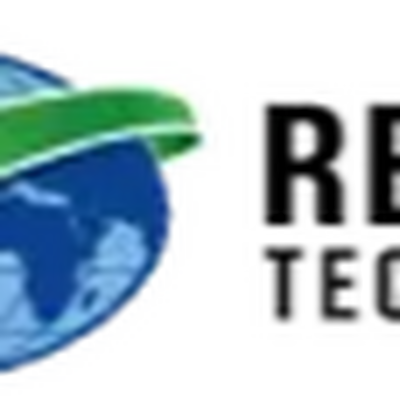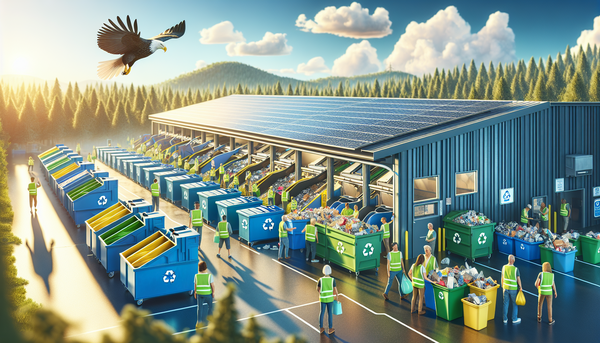Recycling centers play a crucial role in our efforts to protect the environment and conserve resources. In Arkansas, these facilities have become increasingly important as the state strives to improve its waste management practices. Residents and businesses alike are looking for convenient ways to dispose of recyclable materials responsibly, making the search for recycling centers near me a common query.
Arkansas has made significant strides in expanding its recycling infrastructure, but challenges remain. This article explores the current state of recycling centers in Arkansas, highlighting available programs and services, including mail-in programs for those in remote areas. We'll also examine the obstacles facing the state's recycling efforts and discuss potential solutions to enhance recycling accessibility and effectiveness across Arkansas.
Arkansas Recycling Programs and Initiatives
State-wide Recycling Goals
Arkansas has set ambitious goals to reduce waste and increase recycling across the state. The Department of Environmental Quality (DEQ) encourages Arkansans to adopt a comprehensive approach: reduce usage, reuse when possible, recycle all that's feasible, and purchase recycled products. This strategy aims to minimize solid waste disposal in landfills. To support these objectives, the DEQ manages three grant and fund distribution programs, each with specific funding sources, eligibility criteria, and application processes.
Educational Programs
Educational initiatives play a crucial role in promoting recycling awareness and participation. Cities like Fayetteville and Little Rock offer free sustainability presentations and tours to their communities. These programs cater to various age groups and organizations, including schools, businesses, and civic groups. Presentations cover topics such as waste reduction techniques, proper recycling methods, and the overall recycling process. Additionally, tours of recycling facilities and landfills provide hands-on learning experiences for residents.
Incentives for Recycling
To encourage recycling efforts, Arkansas has implemented several incentive programs:
-
Recycling Equipment Tax Credit Program: This initiative provides financial incentives for businesses and individuals investing in recycling equipment.
-
Arkansas Marketing Board for Recyclables: This board works to create and expand markets for recyclable materials within the state.
-
RENEW: A resource exchange network aimed at eliminating waste by connecting businesses with reusable materials.
-
Grant Programs: The state offers various grant opportunities for government entities, schools, nonprofit organizations, and private industry to support recycling initiatives, including electronic waste recycling and infrastructure development.
These programs and initiatives demonstrate Arkansas's commitment to enhancing its recycling infrastructure and promoting sustainable waste management practices across the state.
Challenges in Arkansas Recycling
Rural Area Access
Arkansas faces significant challenges in providing access to recycling services, particularly in rural areas. Many rural communities lack the necessary resources and infrastructure to establish and maintain effective recycling programs. This limitation makes it difficult for residents in these areas to participate in recycling efforts, hindering the state's overall progress in waste management.
Contamination Issues
Contamination of recyclable materials presents a major obstacle for Arkansas's recycling initiatives. Residents often inadvertently include non-recyclable items in their recycling bins, leading to rejected loads by processors. This contamination reduces the value of recyclable materials and increases processing costs. In Rogers, for example, contamination rates have risen as high as 47% during the pandemic. To address this issue, some cities have implemented stricter policies, such as suspending residents from recycling pickup programs after repeated contamination violations.
Market Fluctuations
The recycling market in Arkansas has experienced volatility in recent years, mirroring national trends. Fluctuations in commodity prices and changes in global trade policies have made it challenging for local governments and recyclers to maintain consistent and profitable recycling programs. China's 2018 decision to ban imports of multiple types of solid waste has had a dramatic impact on U.S. recycling programs, including those in Arkansas. This policy shift has forced recycling centers to adjust their collection methods and explore alternative solutions for processing materials.
Conclusion
Arkansas's recycling landscape presents a mix of progress and challenges. The state has made strides to improve its waste management practices through various programs and initiatives. These efforts include setting ambitious recycling goals, implementing educational programs, and offering incentives to encourage participation. However, issues such as limited access in rural areas, contamination of recyclable materials, and market fluctuations continue to pose significant hurdles.
Moving forward, Recycling Center in Arkansas faces the task of addressing these challenges to enhance its recycling infrastructure. By focusing on expanding access, improving education to reduce contamination, and exploring innovative solutions to market instabilities, the state can work towards a more sustainable future. These steps are crucial to boost recycling rates, minimize waste, and protect Arkansas's natural resources for generations to come.
FAQs
1. Which states are recognized for their exceptional recycling programs?
The top states known for their effective recycling programs include Connecticut, Oregon, California, Massachusetts, Iowa, Delaware, New Jersey, and New York.
2. Which country leads the world in recycling efforts?
Germany is the global leader in recycling, boasting the highest recycling rate of 66.1% of its waste.
3. What type of material typically brings in the most money at recycling centers?
Scrap metal is the most lucrative material to recycle. People who have experience with car scrapyards or other scrap facilities are likely familiar with the value of scrap metal.
4. Is there a recycling initiative in Arkansas?
Yes, Arkansas promotes recycling through the Arkansas Recycling Coalition (ARC), which collaborates with a diverse range of stakeholders including businesses, government agencies, nonprofits, and individuals. The ARC emphasizes reducing, reusing, repurposing, and recycling as key strategies for sustainable waste management in the state.



